Burmese Pythons Are Invading The U.S. And They Don’t Plan On Leaving Anytime Soon
Environmental experts have likened the earth’s ecosystem to a libra; it takes a specific balance to keep the two trays from toppling either way.
Similarly, the earth’s ecosystem is so sensitive that it can be changed by one of many factors. Factors like climate change, natural disasters, or the introduction of invasive species could compromise the ecological integrity of a nature reserve.
What in the World Are Invasive Species?
An invasive species is an organism, either plant or animal, not native to a location but introduced by humans. Such species contest with the already existing ecosystem for resources like food, space, or even sunlight.
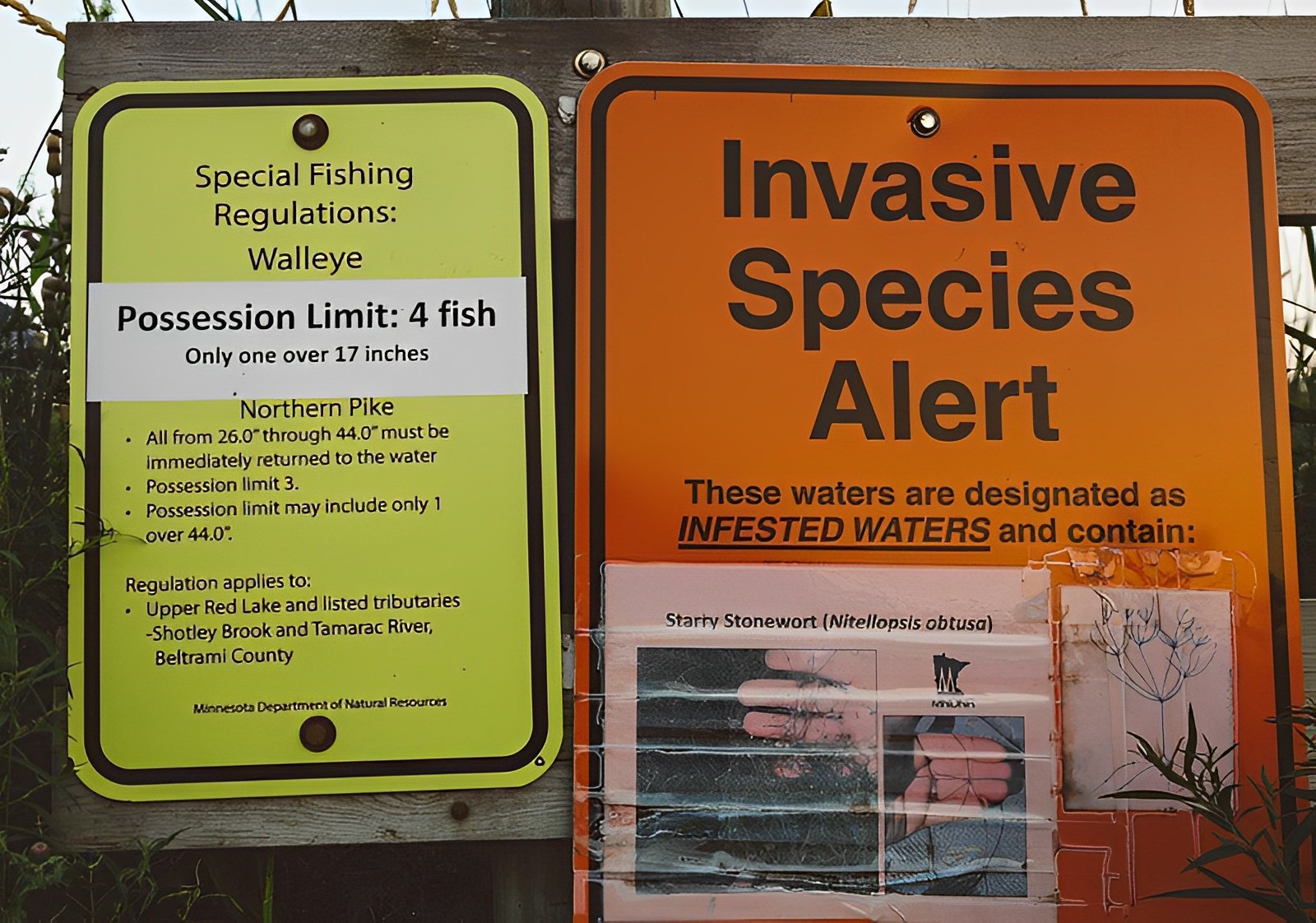
Source: Wikimedia Commons
The invasive species currently terrorizing some regions of the United States is the Burmese Python.
How Pythons Migrated from Burma to North America
No, they did not slither all the way from Asia. This huge specie of snake was brought to the US by snake enthusiasts, who sold them out to people as pets.
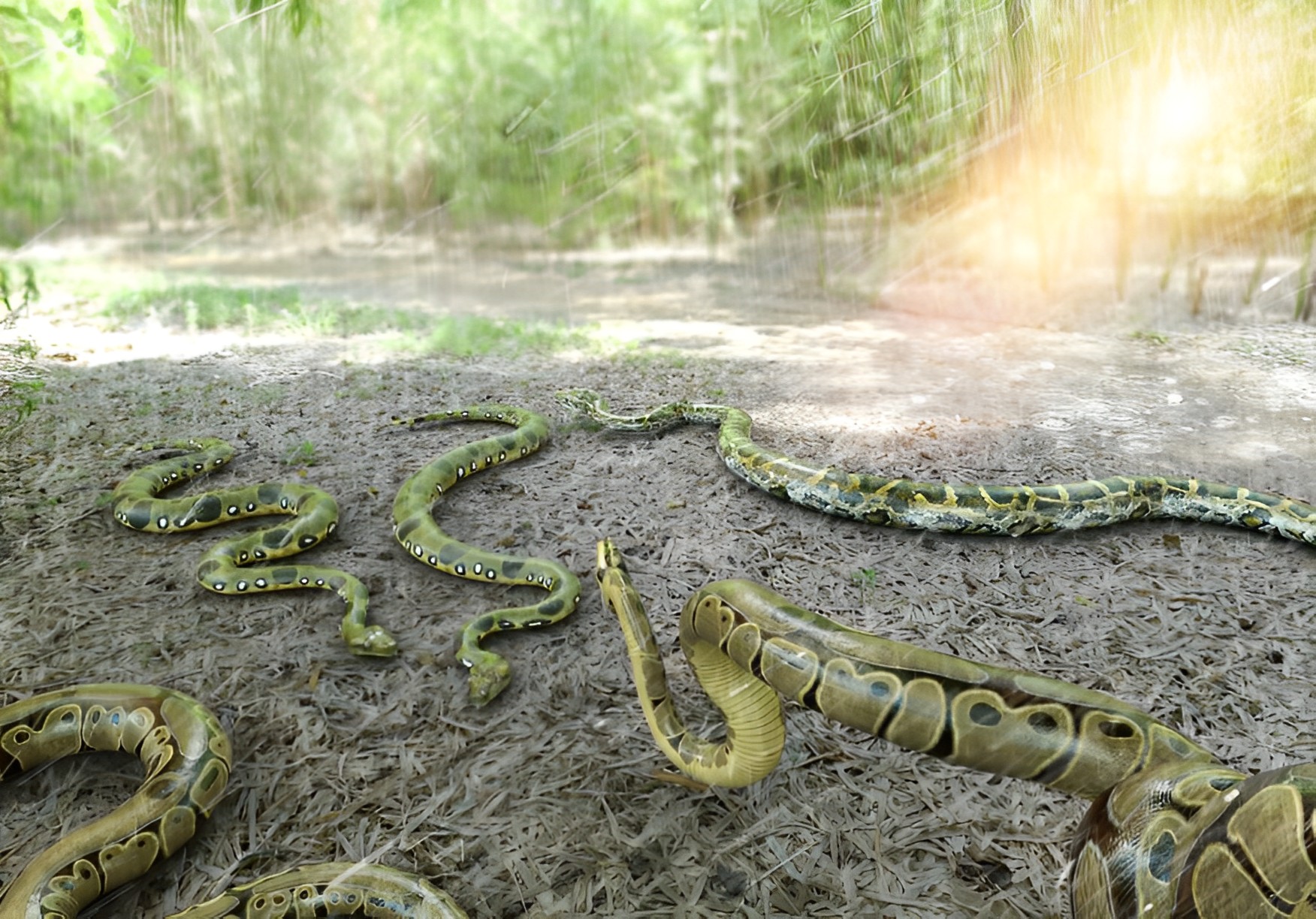
Source: Pixabay
Probably due to their huge sizes and voracious appetite, their owners must have released them into the wild. No one wants a pet that rakes up the grocery bill. Though not their natural habitat, these former pets soon adapted to the Floridan wild.
The Need for a Snake Census
According to the U.S. Geological Survey, there were about three pet Burmese pythons in Florida as of 2000. However, the population rose to 2,940 in 2020, and there are speculations that the figure is way over that.
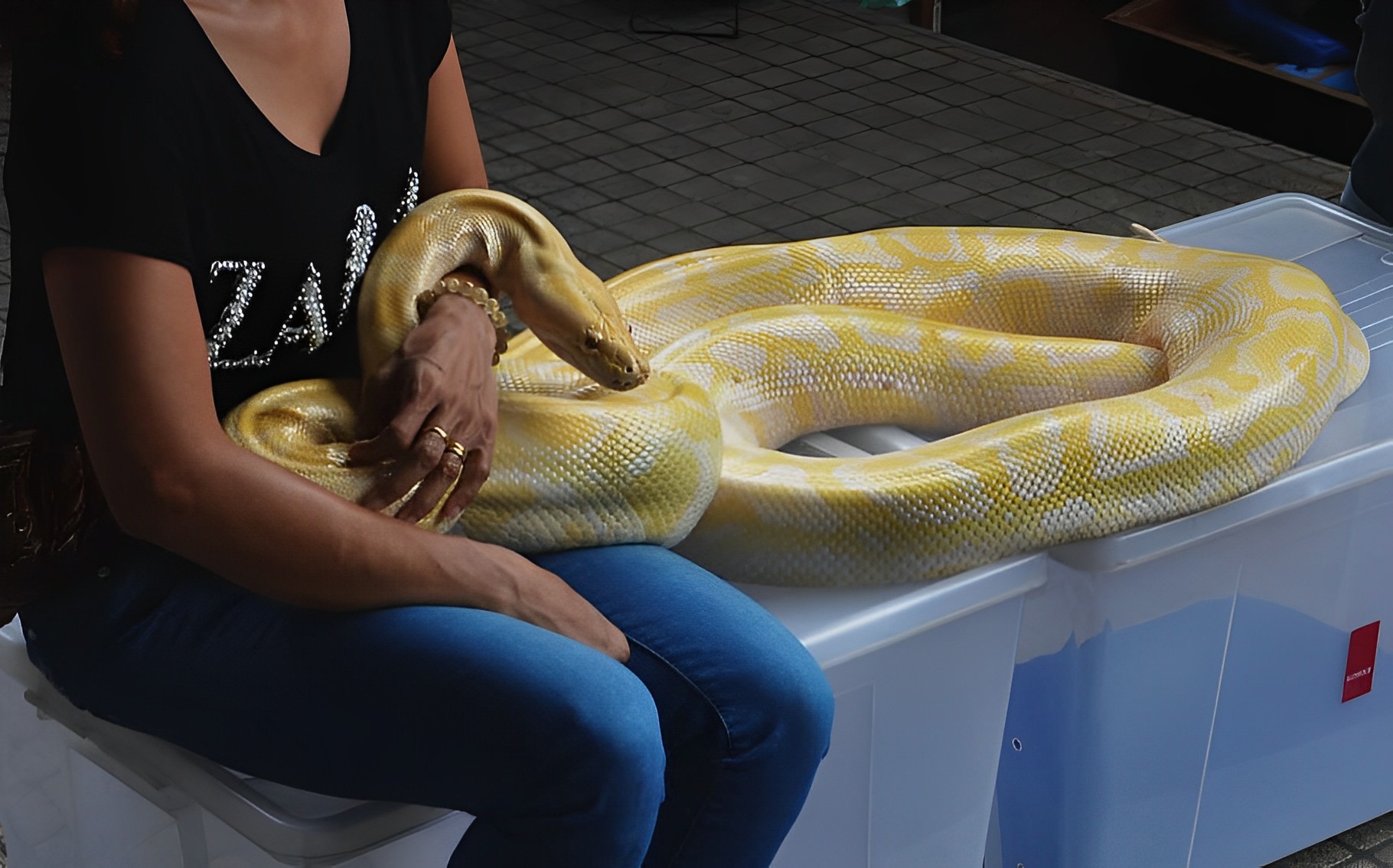
Source: Wallpaper Flare
These are snakes that grow to an adult weight of 200 pounds and 15 feet in length. While they have not been reported as threats to humans in the wild, Burmese snakes are wreaking havoc on other animals.
Its A Struggle to Occupy the Top of the Food Chain
The relative warmth of Florida has provided the right conditions for these pythons to feed and reproduce. However, research studies have discovered that the activities of the Burmese python have become an existential threat to some 76 species of animals.
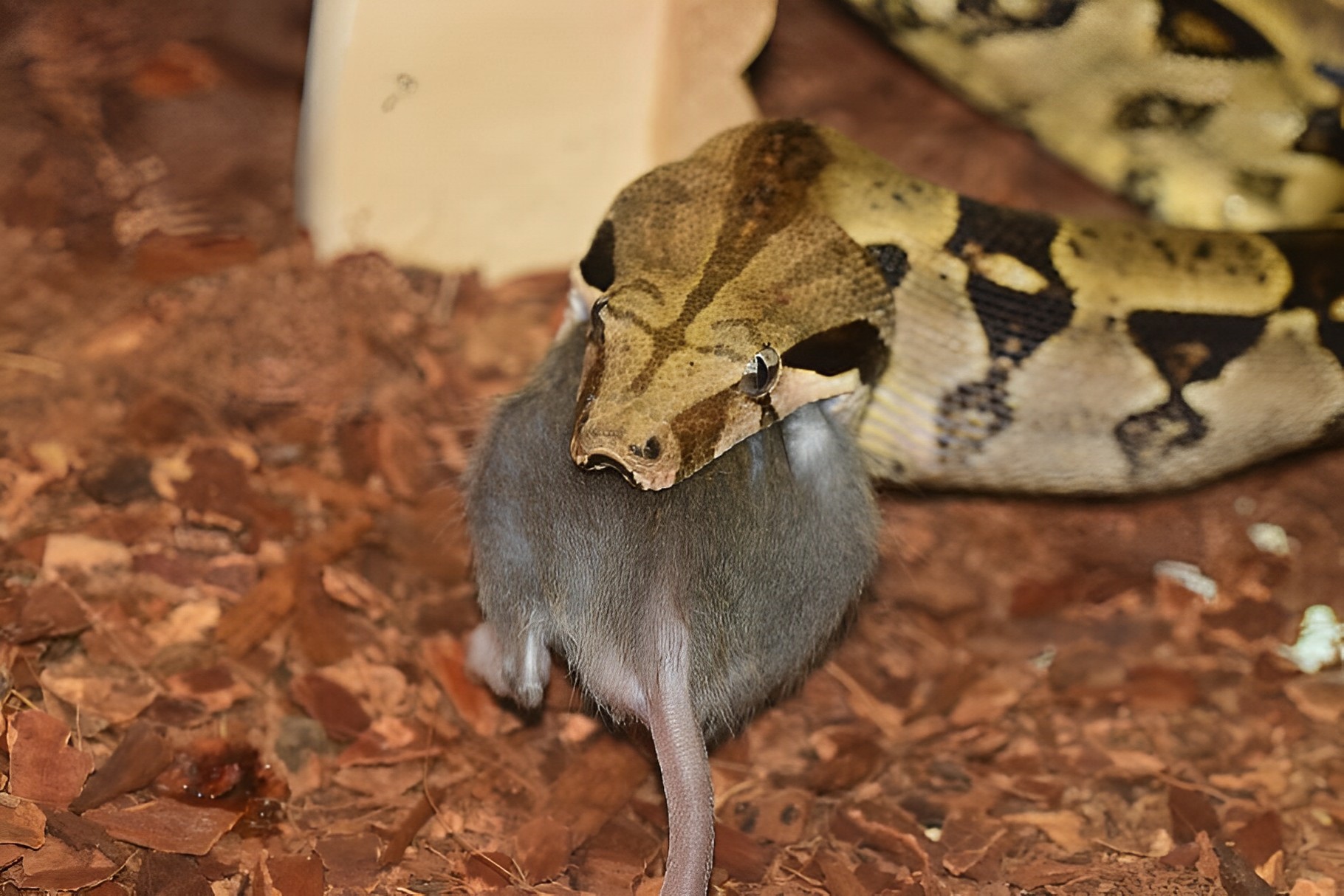
Source: Pxfuel
The animals in question are the common prey of the Burmese python, and some of them are alligators, mammals, and sometimes birds.
Pythons Have Become Apex Predators in Florida and May Extend Their Reach
An apex predator is just like the alpha male in a wolf pack. Invariably, Burmese pythons have rapidly joined the top predators in Florida, sharing the top of the food chain with wild carnivores.
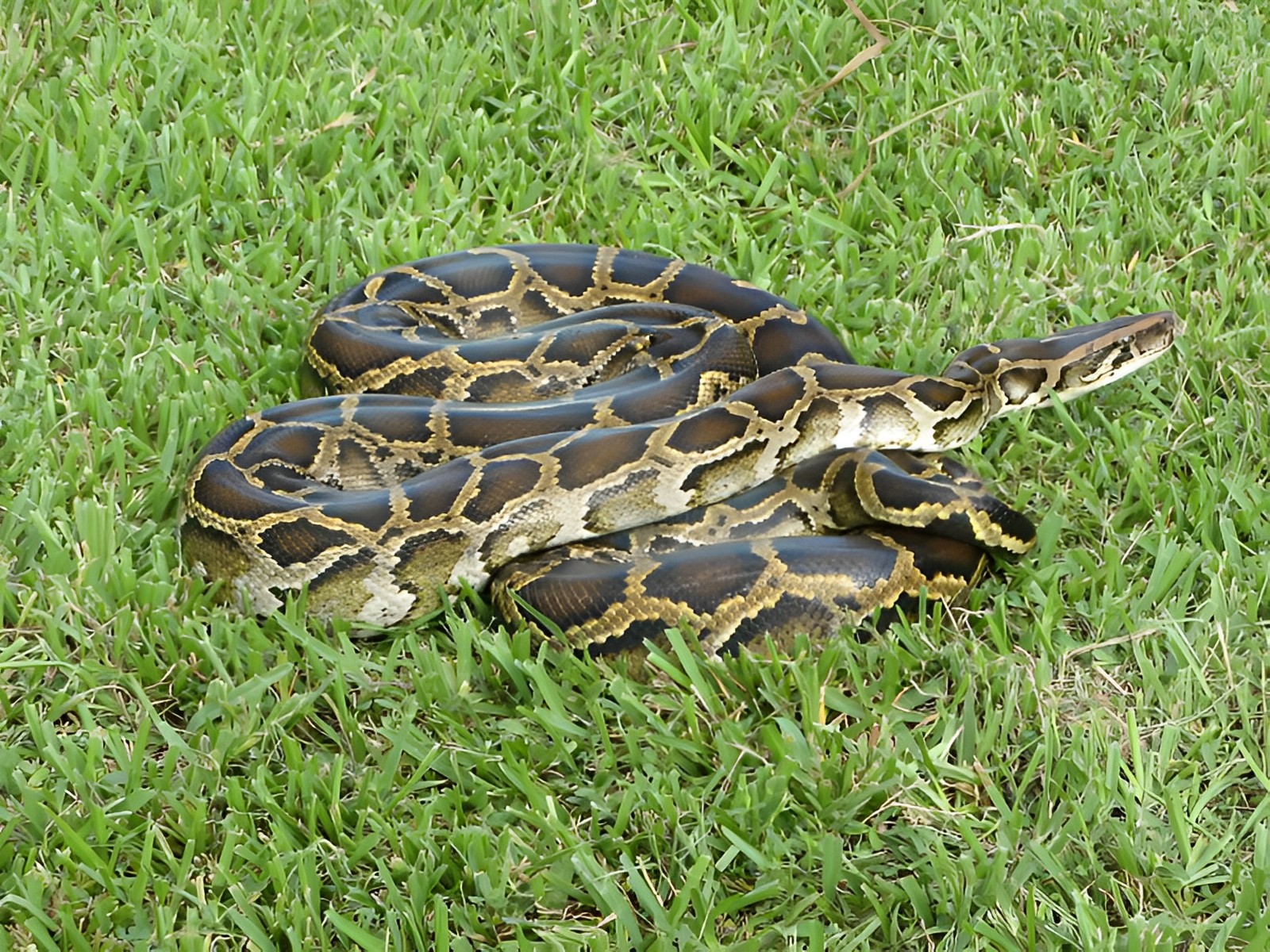
Source: Wikipedia
Environmental experts are suggested that this invasion may be impossible to completely contain. Still, measures are being put in place to check their devastation and spread into other states.
Burmese Pythons and Their Migration Patterns
The potential migration range of these pythons is not known. However, some researchers speculate that cold weather in other parts of Florida and other states will prevent them from migrating.

Source: Wikimedia Commons
Still, another school of thought believes that Burmese pythons are quickly adapting to their environment. Besides, climate change is causing a global increase in temperature.
Keeping the Burmese Python Invasion at Bay
Floridan local environmental authorities have swung into action. One of the many strategies they adopted in culling pythons from the wild is to declare a yearly bounty.

Source: Getty Images
At a named open season, Python hunters are permitted to go into the Floridan wild to cull every such snake. Civilians are allowed to participate. However, they are required to undergo training on humane methods of locating and retrieving Burmese pythons.
Impact of Burmese Pythons On Wildlife in Florida
Charles van Rees, Ph.D., has warned that the Burmese python would create a gaping hole in the food chain if not promptly checked.
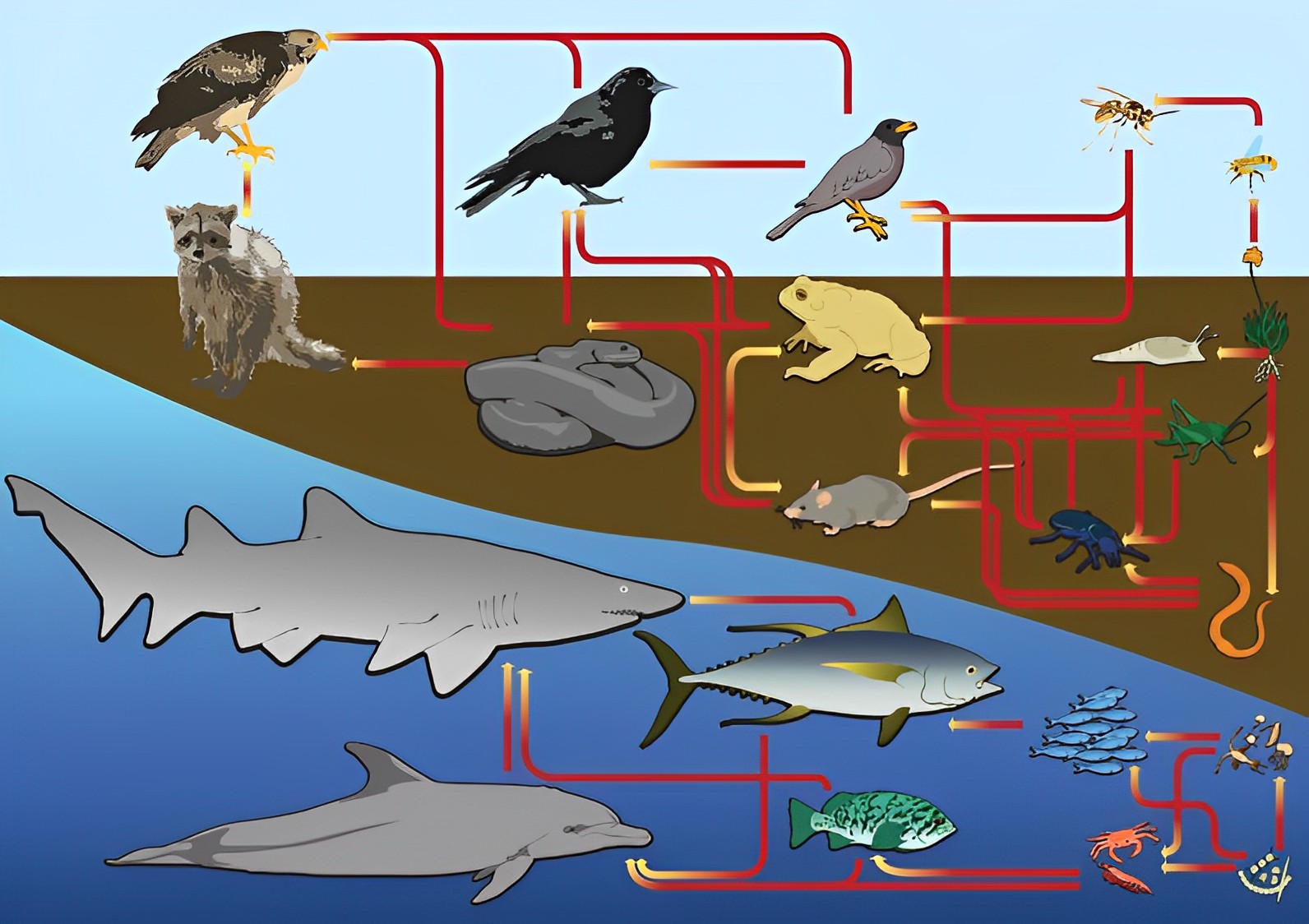
Source: Wikimedia Commons
According to Dr. Rees, a naturalist and conservation scientist, medium-sized animals like opossums, raccoons, and foxes are being wiped out in droves. As if that is not worse enough, an endangered specie of rabbit is also threatened.
Scientists Are Resorting to Tracking These Snakes
The Burmese pythons in Florida can be likened to a garden. If left unattended, the garden will grow weeds, and the weed will soon overrun the useful plants. It’s always the survival of the fittest, and the pythons are not shying away from flexing their 200-pounds muscle.
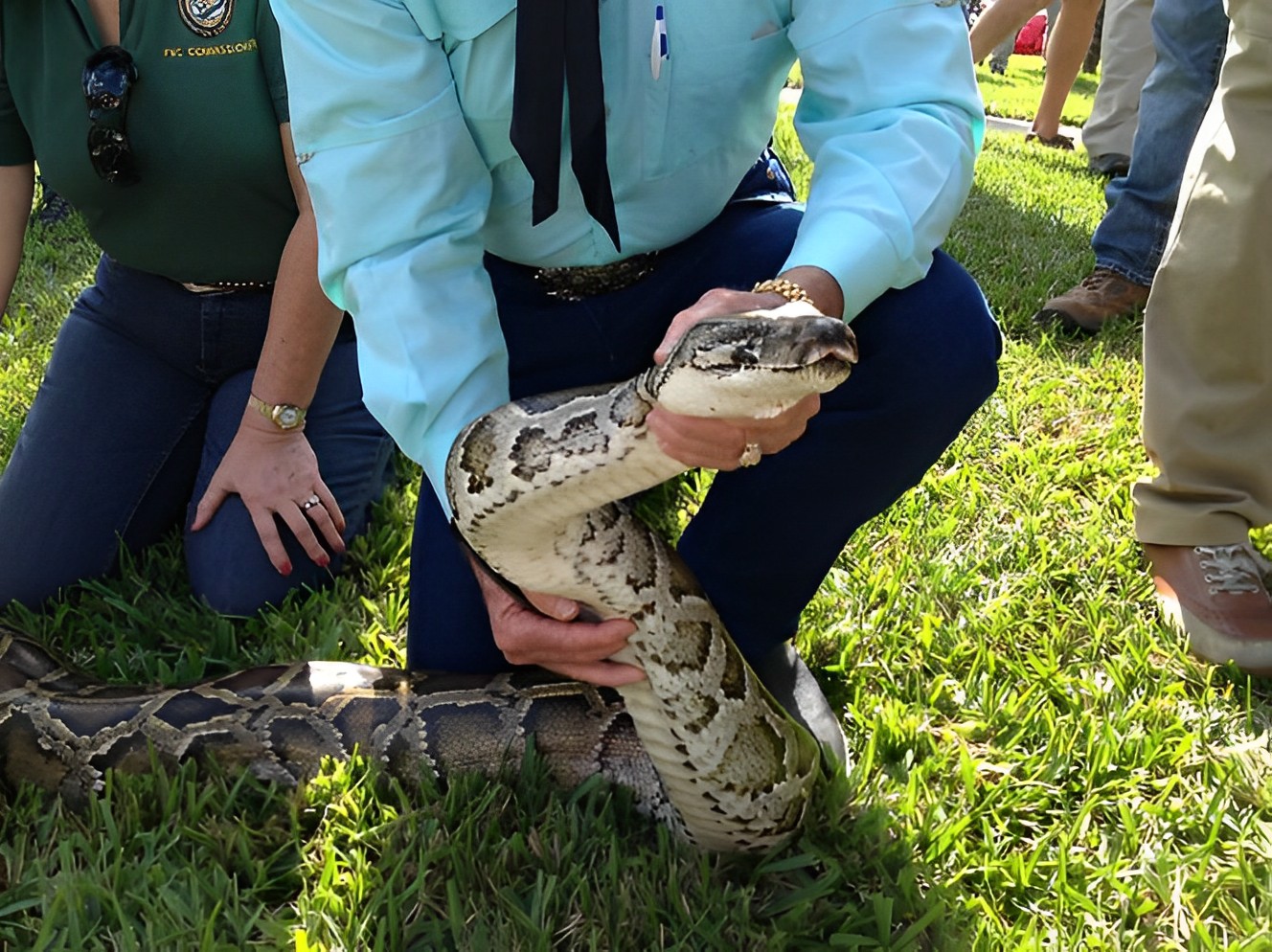
Source: Flickr
Several methods, such as tracking and fitting, are being adopted to avert the impending ecological disasters that Burmese pythons may wreck upon us.
We Can Only Salvage the Situation
Like Escobar’s Hippos, it is almost impossible to eradicate these former aliens. The Burmese pythons are now at home in the Floridian wild and are making the most of it.
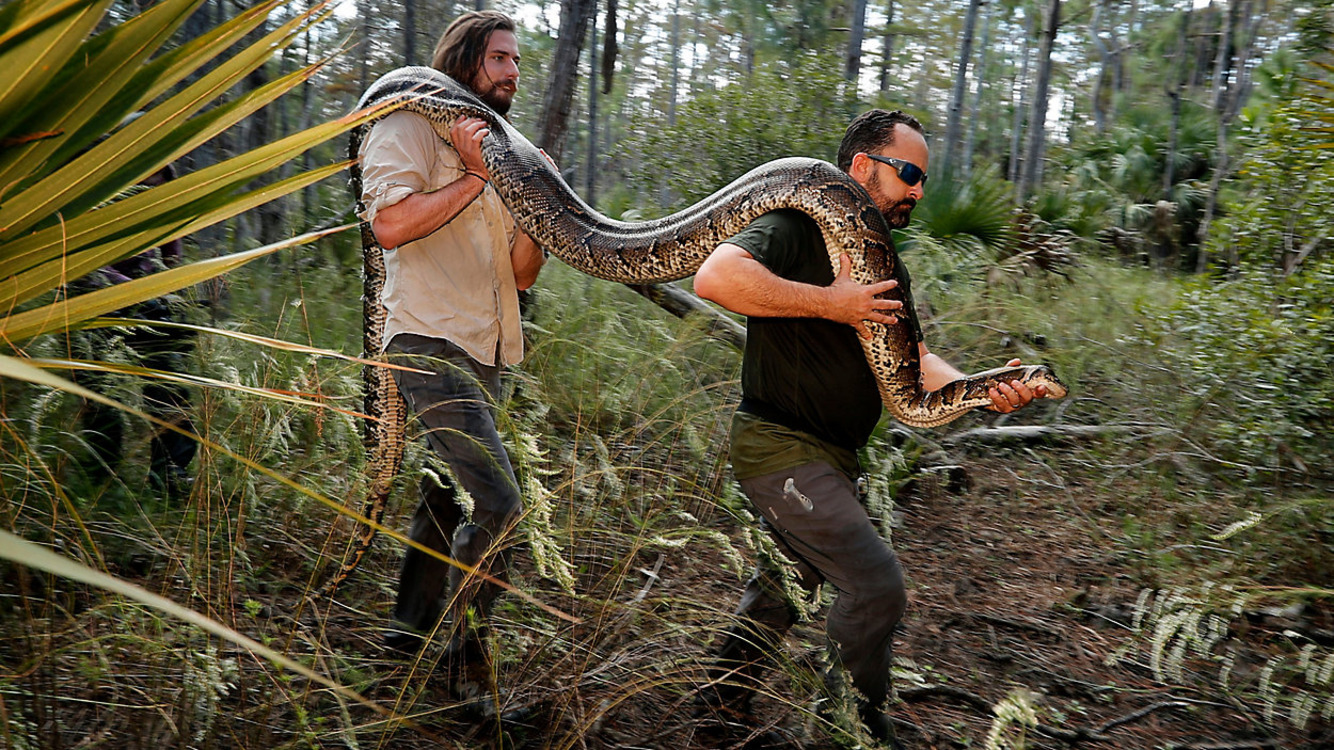
Source: Alamy
Experts have established the impossibility of completely eliminating these snakes. But, it would result in total disaster if we decide to fold our hands and do nothing. We may create a reserve for all the species that the Burmese python endangers while simultaneously culling as many as possible from the wild.
